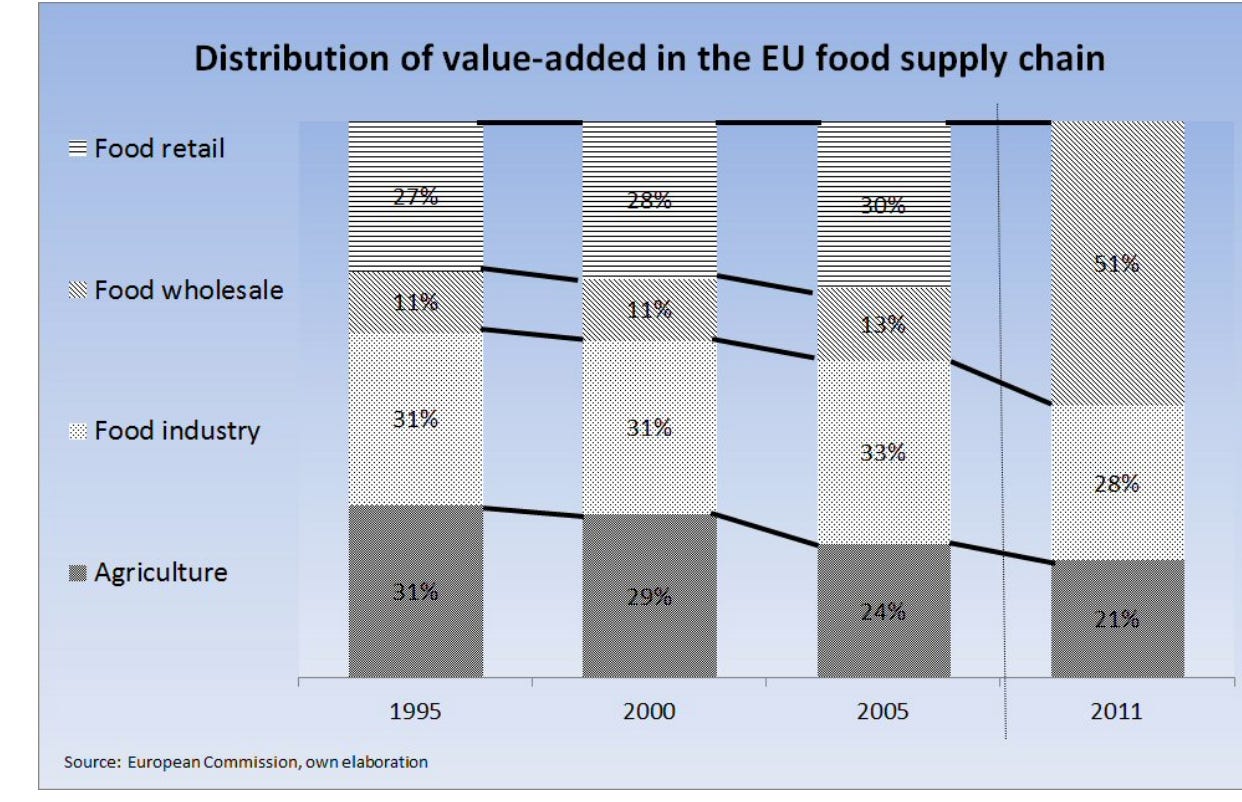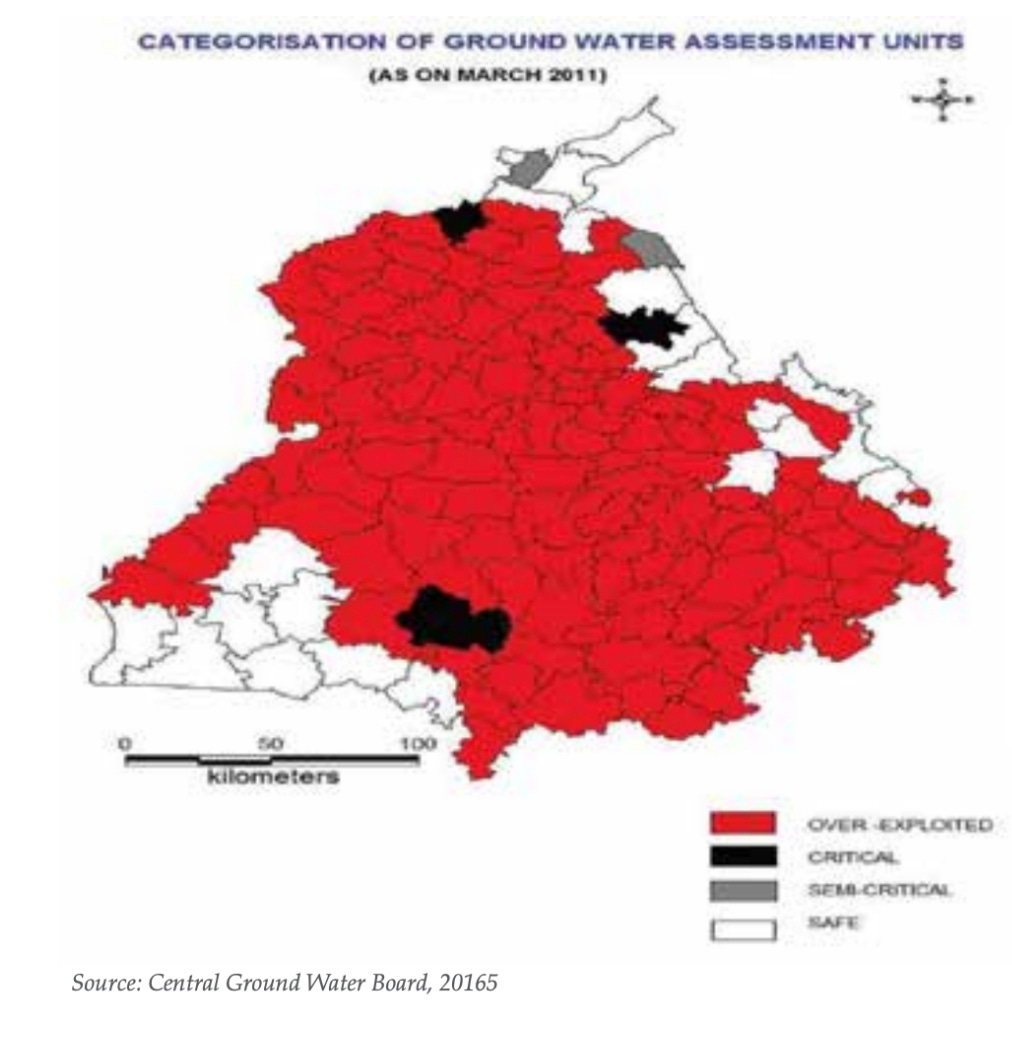Can I Offer You A Grey Pill on Farm Laws?
Amidst the clamouring noise, can you pay attention to the central illusion of choice that underpins the festering debate on Farm Laws?
"After this," says Morpheus to Neo in The Matrix, "there is no turning back."
You take the blue pill — the story ends, you wake up in your bed and believe whatever you want to believe. You take the red pill — you stay in Wonderland, and I show you how deep the rabbit hole goes.
How many of you remember this iconic blue-pill/red-pill scene from Matrix?
I am sorry to break the news.
In the real world, there are no blue pills!
No one so far has found an un-knowing technology that allows us to return to a lost state of innocence.
There are plenty of red pills for sure!.
You will get a flavour of it if you talk to someone who is hell-bent on proving how these farm laws have been brilliantly architected by the powers that be and it is these poor farmers who have the fear of the unknown and are therefore resistant to change.
You will get a different flavour of the red pill if you talk to anyone who thinks that the farm laws are nothing but a sinister crony capitalist scheme devised to advance the interests of traders and corporations over farmers.
Having spent enough time on the farm laws, I am fairly convinced that this debate is now beginning to look like that classic card magic trick in which you are mesmerised by what you see in one hand, without noticing the other hand that is fooling you.
My Commentary on Farm Laws So Far:
Part-1:Setting the Context [For subscribers alone] | Part-2: Criticism | Part-3: In Defense of the Government [For subscribers alone]| Part-4: Oceanic Churning in Indian Agriculture | Part-5: Mapping the Politics of Farm Laws [For subscribers alone]At a time when the entire debate is so obsessed with shovelling the red pill down your throat, whether it is the one which wants you to either unequivocally embrace or reject the farm laws, I want to take a divergent path, at the risk of being misunderstood.
I am going to offer you a grey pill; an effective antidote to see through the magic trick for yourself.
My hope in doing so is this:
Is it possible to look at the underpinning illusion of choice that is being viciously manufactured through this debate to make it seem as if there is only one choice between the old decrepit agricultural system with more intermediaries and the new tech-savvy agricultural system with lesser intermediaries?
You see, the answer is irrelevant, if the question is wrong.
Consider this.
Countries with lesser super-scale intermediaries (Pick your choice of horror stories: The United States of America or The United Kingdom) have screwed up the lives of farmers as much as countries like India with more sub-scale intermediaries.
In the US, in 2018, the farm share was 14.6 cents of each food dollar expenditure.
When the European Commission was asked in parliament to provide details on the average share/percentage of the final price that farmers receive for their produce, relative to the share/percentage received by other actors in the food supply chain, they found that the value added for agriculture in the food chain dropped from 31% in 1995 to 21% in 2011, mainly in favour of other food chain actors.
If you contrast this number with 28% for the food industry and 51% for food retail and food services, it is evident that the highest value addition occurred in the supply chain far away from the farmer
Net net, if you consider these facts, does it even matter whether you demonise the “sahukar”(middleman) intermediary or not?
The problem is this. When you say you want to “disintermediate” by morally arguing that you are essentially unshackling farmers, it sounds very logical and reasonable. Who would oppose this in their right sense of the mind?
If you’ve studied the fractious history of how Internet has transformed the ways we do business and commerce, you would realise that whenever you dis-intermediate an industry value chain, you have to ensure that an enlightened market is put in place (and not just an efficient market as economists have been dreaming wistfully for decades) to orchestrate the game of supply and demand at the pace of those super-scale intermediaries.
Now what will you choose for a country like India with such diverse cropping patterns and climatic zones: Do you choose few super-intermediaries who could make more profits far away from farms or do you choose more but dispersed local intermediaries who could make good enough profit to keep the surrounding farmers entangled with them in loss traps forever?
How do you proceed in a game when you are presented with choices that are equally bad for you?
Consider the irony of malnutrition in a country which, as per a recent ICAR study, wastes at post-harvest stage, 3.9-6% of its cereals, 4.3- 6.1% of its pulses, 5.8-18.0 % of its fruits and 6.8-12.4% of its vegetables.
Our diets- consumers’ and farmers’- are screwed up today because we kept producing grains that nobody wanted. There is no variation in diets.
Data shows that more children of this country have been anaemic in 2019-20 than how they were five to ten years ago. And because we kept producing grains, our soil fertility went for a toss.
Consider the idiocy involved in portraying the farm law debate as a punjabi and haryanvi problem, without understanding the fundamental fact that states like Punjab and Haryana are the last remaining states which have tied together MSP and Mandi system, unlike other states like Orissa which smartly jumped onto the Decentralized Procurement Scheme and decoupled MSP from Mandis.
Check out Sudha Narayanan’s excellent editorial on MSP, if you wish to delve deeper.Do you want to see the farmers from the state of Punjab and Haryana as “heroes” of an erstwhile “green revolution” paradigm that was necessitated by the scarring traumas of the 1943 Bengal famine?
(Although to be honest, having read its history and its ecological consequences, I fail to understand what was green about that revolution.)
Were they really beneficiaries of the erstwhile farming paradigm which made sure that their incomes raised sufficiently during the 1960s to 1990s, before it down south?
Or were they plain victims of a ponzi scheme that gave them huge windfall incomes by depleting the capital of soil fertility?
See this Punjab’s data of ground water assessment units from ICRIER report (as on March 2011) and you will know what I am talking about.
The agony of the protesters in the capital, showing us what it takes to protest with solidarity and nonviolence, was neatly summed up by Sudha Narayanan in one of her interviews.
““In the green revolution, it was almost like we had a social contract with farmers because at that stage we were food scarce and we needed to ramp up supplies of rice and wheat. They did that very efficiently, so in some sense, there is this idea of fairness – about when you wanted us, you gave us all the support and we got the country to a position that we are now able to export grain and now that we are not needed, you are going to dismantle that structure”
The moot Question the farmers are asking the Government is this.
Is it worthwhile to believe on “free markets” that you are now willing to pay the price of breaking this social contract with farmers?
Consider our romantic notions of the inevitability of “free markets” in agricultural produce marketing, without considering the fundamental ground truth that Indian agriculture has all ground conditions for markets to fail.
The other day I was speaking to an Agritech entrepreneur who was sharing with me the challenges involved in setting up cold storage chains in the central part of the country.
After much efforts to pool in capital, he discovered, much to his horror that, cold storages at a village and taluka level make economic sense only when they are spatially interlinked with robust market linkages in the surrounding economic market zones.
And so, it becomes an effective cart and horse problem.
Do you first invest to setup the infrastructure cart in place before you tie in the horse of market linkages or do you first make sure that market linkages are addressed primarily before you go ahead and make the investments for cold storage?
My point is simple.
We are being deluded to believe that this debate is a simple choice of picking
Chimera of MSP to improve farmers’ incomes Over Myth of Free Markets
Status Quo through Corrupt APMC Mandis Over Irresponsible VC Sponsored Market and Price Speculation Experiments conducted by Farm Gate Agritech Startups at Farmers’ Expense.
Making Few Rich Farmers Richer Over Keeping Poor Many Farmers Poorer
Food Security Over Food Inflation
Regulation Over Free Trade
And here is the saddest thing.
Through my networks and friends who are currently stationed at the protest site in Delhi, I have been receiving updates from farmers of various states.
Given the fractious political climate and the media drama we all have created successfully around farm laws, even intelligent farmers today are now beginning to think that they have to pick either one of these choices, failing to understand that the heart of the issue goes much much beyond selecting these two limiting options.
Picking either of the two will not change ground realities, unless, farmers and more importantly us, consumers, ask fundamental questions about the food we eat, the food systems we have built at scale, and how we incentivise farmers to grow healthy food that nourishes their lives and consequently ours.
Unless we stand up and acknowledge the gravity of the mess we are currently in, we will definitely screw not just farmers’ lives but also our lives.
This must be really hard to swallow. Nevertheless, I will state it out, as it is my dharma to be honest with you.
It doesn’t matter if we do the farm laws right or wrong.
Even if we pore deeply over every clause of the farm laws to make sure that they are foolproof, we could still get screwed, unless we take full stock of our hapless predicament and ask fundamental questions about our broken food system and its sustainability in a warming planet.
We have reached such dangerous levels of polarisation that we fail to acknowledge how we’ve callously shrunk the horizon of our choices. In these moments of deep political churning, if we don’t ask fundamental questions, we will never get this window of opportunity again.
If either of the parties in this political slugfest between government and farmers win, they would feel happy and the other would feel slighted. A few will get richer. A few will get poorer. Few will get more power. Few wont.
Net net, it won’t help us address the fundamental paradox of making agriculture sustainable and profitable through collaboration with nature which abhors efficiency.
If there is one key takeaway I wish we could take (and I am fully aware that my voice is among the minorest minority) from this massive debate happening on agricultural reforms, it will be this.
Can we look closely at this illusion of choice that is being presented to us by the entire media circus and start asking what is the real choice that we need to make, if we are serious about transforming agriculture?
This is the question that I feel that is worth asking as we bid adieu to 2020 with a huge sigh of relief!
This will be my last post for 2020! I am taking time out to unwind and come back with fresh lenses to explore viable solutions to this question!
Enjoy your holidays!
Feliz Navidad
Próspero año y felicidad!





